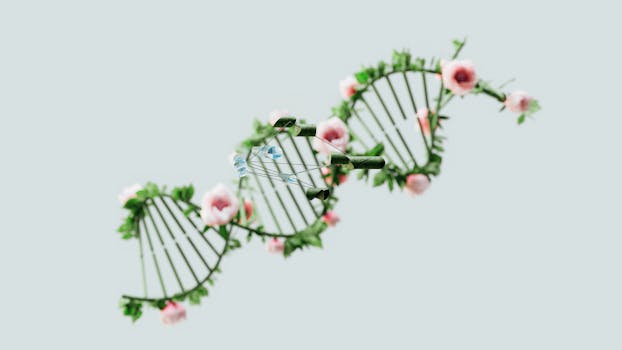
The Role of Genetics in Human Health and Disease
Introduction to Genetics and Human Health

The role of genetics in human health and disease is a complex and multifaceted field of study. Genetics play a crucial role in determining our susceptibility to certain diseases and our overall health. Genetics is the study of heredity, genes, and variation. It is a branch of biology that deals with the study of the structure, function, and evolution of genes and genomes. In this article, we will explore the role of genetics in human health and disease, and how it affects our lives.
Genetic Disorders and Diseases

Genetic disorders and diseases are conditions that are caused by abnormalities in an individual’s DNA. These abnormalities can be inherited from one’s parents or can occur spontaneously due to environmental factors or errors during DNA replication. Some common genetic disorders include sickle cell anemia, cystic fibrosis, and Down syndrome. These conditions can have a significant impact on an individual’s quality of life and can often be life-threatening. Genetic diseases can be inherited in an autosomal dominant, autosomal recessive, or X-linked pattern, depending on the location of the gene and the type of mutation.
Genetic Variation and Disease Susceptibility

Genetic variation refers to the differences in the DNA sequence between individuals. These variations can affect an individual’s susceptibility to certain diseases and can also influence their response to environmental factors. For example, some genetic variations can affect an individual’s ability to metabolize certain drugs, making them more or less responsive to treatment. Other genetic variations can increase an individual’s risk of developing certain diseases, such as heart disease or diabetes. Genetic variation can also affect an individual’s risk of developing certain types of cancer, such as breast or colon cancer.
Epigenetics and Gene Expression

Epigenetics refers to the study of gene expression and how it is affected by environmental factors. Epigenetic changes can occur without altering the underlying DNA sequence and can be influenced by factors such as diet, stress, and exposure to toxins. These changes can affect an individual’s susceptibility to certain diseases and can also influence their response to treatment. Epigenetics plays a crucial role in the development of many diseases, including cancer, and is an area of active research.
Conclusion

In conclusion, the role of genetics in human health and disease is a complex and multifaceted field of study. Genetics play a crucial role in determining our susceptibility to certain diseases and our overall health. Understanding the genetic basis of disease can help us develop new treatments and improve our ability to diagnose and prevent certain conditions. Further research is needed to fully understand the role of genetics in human health and disease, but it is clear that genetics will continue to play an important role in the diagnosis, treatment, and prevention of disease.



